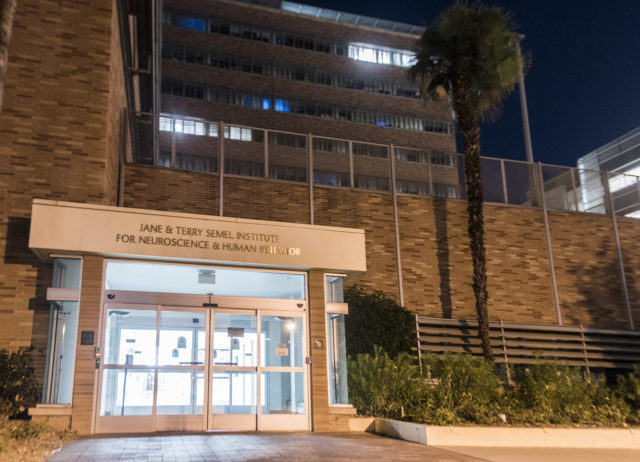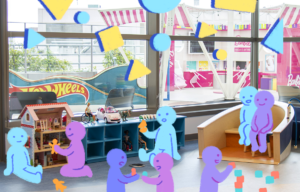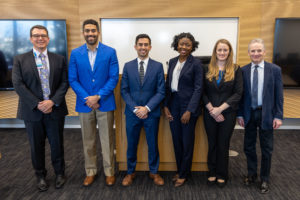This post was updated Feb. 16 at 9:44 p.m.
On her days off, UCLA psychologist Jocelyn Meza heads to markets in West Los Angeles with a stack of flyers advertising the free bilingual depression support group she leads.
Meza, an assistant professor in residence in the department of psychiatry and a bilingual licensed clinical psychologist, said someone looking to join the support group once approached her asking where they could find the “community psychologist.”
“That’s, I think, the best title I have ever heard someone refer to me as,” Meza said.
Meza’s support group for people with depression, La Plática, or “The Conversation” is part of UCLA Health’s Spanish Speaking Psychosocial Clinic. Two psychiatrists and a social worker started the clinic in the 1970s to address the needs of Spanish-speaking patients, who at the time lacked such services, said Dr. Erica Lubliner, the center’s director.
Spanish speakers make up a majority of LA’s population, but only around 6% of physicians and 2% of psychiatrists are Latinx, said Dr. Veronica Sanchez, a psychiatry resident at the clinic. Lubliner added that speaking in one’s native language helps people feel at ease when expressing their emotions.
“Whenever a patient comes in and they realize that I speak Spanish, it’s like a door is opened. It’s an immediate connection. I feel like they’re immediately able to really engage with me,” Sanchez said. “It’s also important to have some type of understanding of cultures because they play such a big role in our mental health.”
Treatment at the clinic is a collaborative effort involving psychiatrists, therapists and other residents, Sanchez said. She added that they brainstorm together to create an optimal plan for each patient’s care.
Meza said the clinic also seeks to train students working toward a psychology license, adding that speaking Spanish and being able to provide care in Spanish are different things.
‘It’s so powerful to have a psychologist that is bilingual (and) bicultural because it’s not just about speaking Spanish. It’s also understanding the culture and for them to share with me that they feel seen,” Meza said.
For example, Meza said the center has a lecture series for its staff to help cultivate this cultural context at the clinic. In the series, employees hear from guest experts about how to improve access and quality of care for patients in the Latino community, Sanchez said.
She added that in a recent lecture series, they learned about motivational interviewing for Latino communities.
“In motivational interviewing, you try to figure out, ‘OK, what are the patient’s goals? What means a lot to them?’ And so one of the things that you do is you try to figure that out and incorporate it in the way you talk to the patients,” Sanchez said.
Meza said the main challenge the clinic has faced is the cost of getting mental health care. Many families do not come because they feel like they cannot afford it, she said.
She added that the clinic is working on securing funding from external resources, including the state of California, to continue offering care.
Going forward, Lubliner said one of her goals for the clinic is to expand on behavioral interventions, such as exercise, sleep and social engagement. Lubliner added that she hopes to create a formal behavioral interventions branch of the clinic to support patients’ mental and physical health.
Meza added that Lubliner has been referring patients to different departments, such as family medicine, to be treated for physical conditions, too.
“We’re opening the doors of not just mental health care, but well-being and care overall,” Meza said.
Additionally, Lubliner said the clinic is also working on accepting the UC Student Health Insurance Plan to service more students, adding that as a former UCLA student herself, she hopes to be able to provide resources and give back to the community.
Ultimately, medicine is about treating people in a way that best fits them and their circumstances, Meza said.
“You have to meet the community where they’re at,” she said. “We really want to disrupt or dismantle that power dynamic of, ‘You come to us.’ It’s like, ‘No, we’ll come to you.’”






Comments are closed.